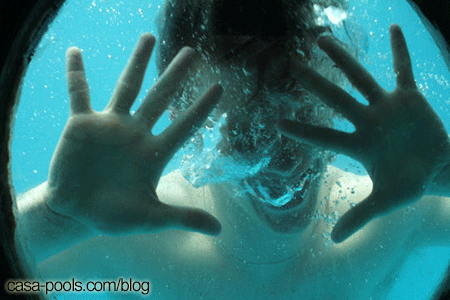|
|
|
Published On: February 17, 2014
By: David Green, Ohio
|
HEALTH CATEGORY
|
WHAT IS AQUAPHOBIA
|

|
|
what is aquaphobia
|
Aquaphobia, or fear of water, is a fairly common specific phobia. Like all phobias, it may vary dramatically in severity from person to person. Some people are only afraid of deep water or strong waves, while others fear swimming pool (swimming pools) and bathtubs. Some are afraid of entering the water, while others cannot bear to even look at a large body of water. Occasionally, aquaphobia is so pervasive that even being splashed or sprayed with water can cause a phobic reaction.
Causes of Aquaphobia
The most common cause of aquaphobia is a previous negative experience. If you have been through a near-drowning, shipwreck or other scary occurrence in the water, you are more likely to develop a phobia of water. Learning to swim is a rite of passage for many children, and frightening experiences are common. The way that these situations are handled plays a major role in determining whether a phobia will occur.
The negative experience need not have happened to you specifically. After the film Jaws was released in 1975, reports of water phobia, as well as shark phobia, increased dramatically. In addition, if your parents are afraid of water, you are at a higher risk of sharing their fear.
Symptoms of Aquaphobia
Like all specific phobias, the symptoms of aquaphobia vary between sufferers. In general, the more severe the phobia, the more severe the symptoms will be. You might shake, freeze in place or attempt to escape. You may develop anticipatory anxiety in the days or weeks preceding an upcoming encounter with water. You might refuse to enter the water, or begin panicking as soon as you step in.
Complications of Aquaphobia
Water is an innate part of human life. Swimming is a common activity at summer camps and resorts, on cruise ships and at luxury hotels. Avoiding the water altogether may be difficult or embarrassing.
If your fear extends to water splashes and sprays, it can be even more life-limiting. Fountains are a decorating staple at theme parks, resorts and even local malls. Some of these fountains perform elaborately choreographed water routines set to music and timed lighting, which may splash bystanders. Water splashes are also a common effect in haunted houses and carnival rides and games.
In some cases, aquaphobia can lead to ablutophobia, or fear of bathing. This relatively rare phobia can have a devastating impact on self-esteem. Modern culture places a heavy emphasis on cleanliness and hygiene, and those who do not take a daily shower or bath may be scorned. There is also an elevated risk of both common and rare diseases in those who allow dirt and bacteria to linger on their skin and hair.
Treating Aquaphobia
Like most specific phobias, aquaphobia responds quite well to treatment. Cognitive-behavioral therapy is especially popular. You will be taught to replace negative self-talk with more positive messages, and learn new behaviors for coping with your fear. You might be given homework assignments, such as filling the bathtub with a few inches of water and stepping in, or visiting the ocean while remaining safely on the shore. Over time, a series of small successes will increase your confidence, allowing you to gradually add new water-related activities.
If your phobia is severe, medications, hypnosis, and other forms of therapy may be used to help you get your fear under control.
The goal is for you to become comfortable around water, and there is no one size fits all treatment that works for everyone. Nonetheless, with the help of a skilled therapist, aquaphobia can be successfully managed and even overcome.
Source: American Psychiatric Association. (1994). Diagnostic and statistical manual of mental disorders (4th Ed.). Washington, DC: Author.
|
|
|
|
|
